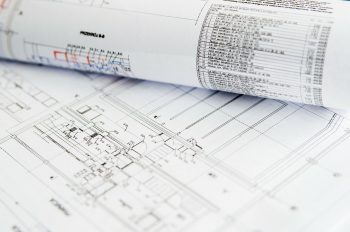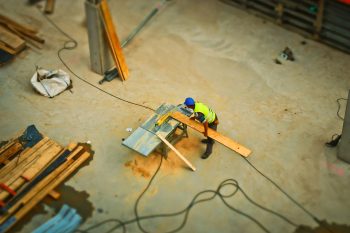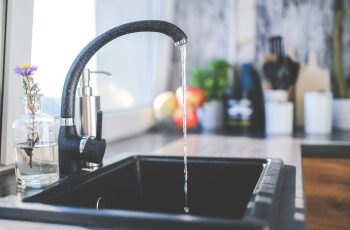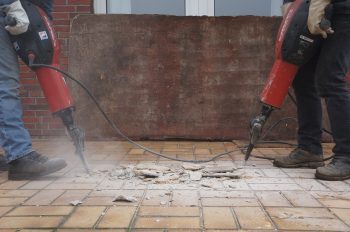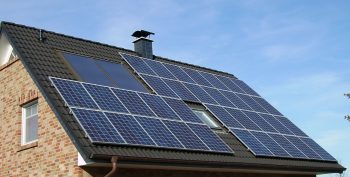Solutions
Holistic solutions
An innovative holistic model as an integrated service, replicable to other residential buildings
Circular construction is currently a very wide field with a lot of mostly local small-scale initiatives and solutions. In addition, these solutions are mostly single topic solutions, focusing on just one area such as material waste or water treatment. What is missing for anyone interested to engage in the topic is a central repository, which provides a holistic set of information about and access to providers for circular solutions. The first pillar of the HOUSEFUL solutions focusses on bridging this gap by providing access to a full range of solutions which will enable stakeholders to create holistic circular offerings.
Within the Holistic pillar three services are currently being developed:
Materials solutions
In accordance with the recent European policy initiatives promoting the construction and refurbishment of buildings in a resource efficient way, HOUSEFUL will implement a circular approach in the use and disposal of construction materials.
The European construction industry accounts for over 50% of the EU’s resource consumption and 46% of its waste production -the largest waste stream in the EU. There is a growing awareness that we need to understand buildings as material banks, which radically changes the way resources need to be managed within the construction industry and the built environment. Like warehousing, buildings, cities and regions will have to keep track and anticipate the stocks and flows of materials, needing to document and communicate (at the right moment) which materials in what quantities and qualities become available for re-use or recycling where and at what time in the future (Heisel, Oberhuber1). Within HOUSEFUL there will be a set of solutions (services 3, 4 and 9) made available or being developed which facilitate the high-quality reuse of construction materials.
Within the Material pillar two services are currently being developed:
Water solutions
The housing sector accounts annually for 33% of water consumption. With the aid of Nature Based Solutions (NBS) water can be recycled and reused in domestic environments.
Water is essential for human survival and well-being and plays a significant role in sustainable development and circular economy. The European Union (EU) is threatened by serious water shortages. One third of EU territory is already experiencing water stress, posing threats to agriculture, the environment and drinking water. Extending the lifecycle of water resources is essential in a time when water shortages and droughts becoming more intense and frequent and affect a greater number of people. Water reuse is a central element of a number of EU’s regulatory frameworks.
Within the Water pillar two services are currently being developed which allow to water reuse at household level:
Waste solutions
Construction and demolition belong to the five priority areas to be tackled in the context of the European circular economy. It is the built environment where the majority of the European waste production originates, in form of construction and demolition waste, wastewater and organic waste. Circular economy principles allow for the implementation and incorporation of waste management into economically viable and sustainable solutions that convert retrofit investments from a liability into an asset.
Understanding waste as a resource is one of the key elements in the transformation to a circular economy and the built environment. Construction waste accounts for 48% percent of the waste generated across the EU. While the search for efficient treatment of material waste is on the political and societal agenda for decades, the potential of wastewater is only recently understood, as is underlined by the title of a recent United Nations Report: ‘Wastewater: The Untapped Resource’. Wastewater has considerable potential to support circular approaches due to the wealth of potentially recoverable resources it contains – including inorganic nutrients, such as nitrogen and phosphorus, organic fertilizers, biogas, biopolymers, heat, cellulose, heavy metals, pharmaceutical products, and water. Another important waste stream is organic waste. Across the European Union, somewhere between 118 and 138 million tons of bio-waste are generated annually, of which currently only about 40% is effectively recycled into high-quality compost and digestate. As up to 50% of municipal solid waste is organic, it is key to divert organic waste from landfills and to guarantee that high-quality secondary raw materials (composts and digestate) are being recovered.
Within the Waste pillar three services are currently being developed focusing on recovering valuable resources from material waste deriving from construction and demolition as well as blackwater and organic waste produced at household level:
Energy solutions
At European level, the housing sector is responsible for the consumption of about 40% of available energy, especially due to the high rate of buildings that were built before the building codes tackled energy issues and have not been renovated yet. The EU’s path to decarbonization requires not just a reduction of the energy demand in every dwelling, but also exploring the opportunities of turning some of them into energy producers.
Within the Energy pillar two services are currently being developed:





